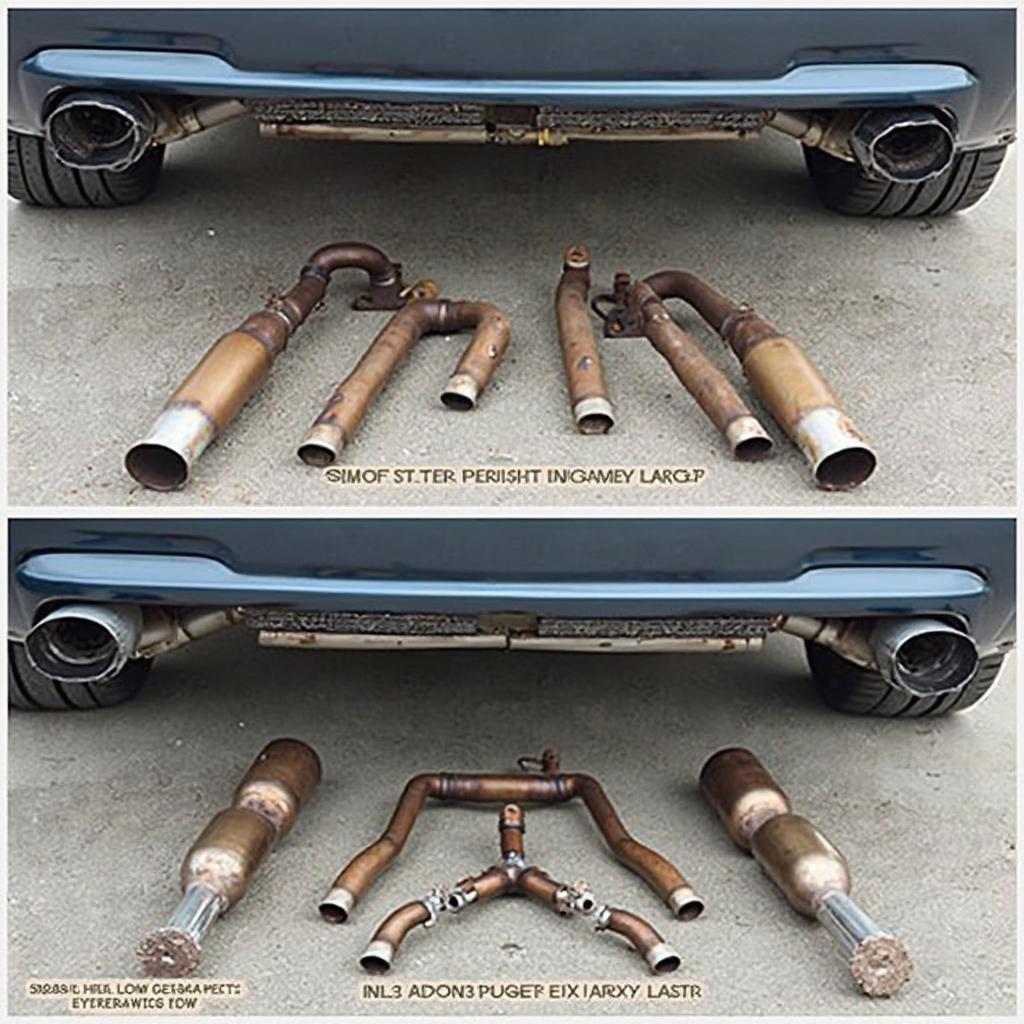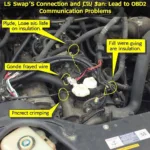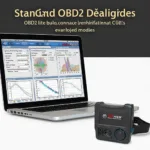The e36 m3 obd2 midpipe is a crucial component of your exhaust system, impacting both performance and emissions. Whether you’re looking to upgrade for more power, improve sound, or address emissions concerns, understanding your options is key to making the right choice for your BMW.
Decoding the E36 M3 OBD2 Midpipe
The “midpipe” refers to the section of the exhaust system between the headers and the rear muffler. For the E36 M3 equipped with the OBD2 system (typically 1996 and later models), the midpipe plays a vital role in emissions control, incorporating catalytic converters to reduce harmful pollutants. Replacing or modifying the midpipe can significantly affect your car’s performance, sound, and compliance with emissions regulations.
Why Upgrade Your E36 M3 OBD2 Midpipe?
There are several reasons why E36 M3 owners consider upgrading their midpipes:
- Performance Gains: Aftermarket midpipes often feature less restrictive designs, allowing for improved exhaust flow and potentially increasing horsepower and torque.
- Enhanced Sound: A new midpipe can dramatically change the exhaust note of your E36 M3, from a subtle growl to an aggressive roar.
- Emissions Compliance: While some aftermarket midpipes are designed to meet emissions standards, others are not. Understanding the regulations in your area is crucial before making any modifications.
- Weight Reduction: Some aftermarket options are constructed from lighter materials, contributing to overall weight savings.
Choosing the Right E36 M3 OBD2 Midpipe
Selecting the right midpipe for your E36 M3 depends on your individual needs and priorities. Here are some key factors to consider:
- Material: Stainless steel is a popular choice for its durability and corrosion resistance.
- Diameter: Larger diameter piping generally improves flow but can also increase noise levels.
- Catalytic Converter: Consider whether you need a catted or catless midpipe. Catless midpipes offer the most performance potential but are not street legal in many areas. High-flow catalytic converters offer a compromise between performance and emissions compliance.
- Brand Reputation: Choose a reputable brand known for quality and fitment.
Common E36 M3 OBD2 Midpipe Issues
- Catalytic Converter Failure: Over time, catalytic converters can become clogged or fail, impacting performance and emissions.
- Exhaust Leaks: Leaks can develop at the flanges or welds, causing noise and reduced performance.
- Rust and Corrosion: Especially in areas with harsh winters, the midpipe can be susceptible to rust and corrosion.
Expert Insights on E36 M3 OBD2 Midpipes
“Choosing the right midpipe is essential for optimizing your E36 M3’s performance,” says Michael Schmidt, a BMW specialist with over 20 years of experience. “Consider your driving style, budget, and local regulations when making your decision.” He also emphasizes the importance of professional installation for optimal performance and to avoid potential issues.
“Don’t overlook the impact of the midpipe on your car’s overall sound,” adds Sarah Chen, a performance tuning expert. “A well-designed midpipe can enhance the driving experience by creating a more desirable exhaust note.”
E36 M3 OBD2 Midpipe: Maximizing Performance and Sound
Ultimately, upgrading your e36 m3 obd2 midpipe can significantly impact your driving experience. By carefully considering your needs and researching your options, you can choose a midpipe that enhances both performance and sound while ensuring compliance with emissions regulations.
FAQ
- Is it legal to install a catless midpipe on my E36 M3? It depends on local regulations. Check your local laws regarding emissions compliance.
- Will a new midpipe void my warranty? It may void your warranty depending on the specific modifications and your warranty terms.
- How much does an E36 M3 OBD2 midpipe cost? Prices vary depending on the brand, material, and features.
- Do I need a tune after installing a new midpipe? A tune is not always required, but it can optimize performance gains.
- Can I install the midpipe myself? While possible, professional installation is recommended.
Contact Us
For assistance with choosing the right OBD2 scanner or any car diagnostic tool, contact us via WhatsApp: +1(641)206-8880, Email: [email protected] or visit us at 789 Elm Street, San Francisco, CA 94102, USA. Our customer service team is available 24/7.


